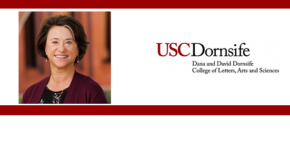 Using complex jargon can lessen the impact of a message.
Using complex jargon can lessen the impact of a message.
Gale Sinatra, distinguished professor and Stephen H. Crocker chair professor of education and psychology dean for research at the Rossier School of Education at the University of Southern California, says keep it simple.
Dr. Gale Sinatra is a Distinguished Professor of Psychology and Education and the Stephen H. Crocker Professor at the USC Rossier School of Education. Her areas of expertise include climate science education, evolution education, learning theory, knowledge construction, conceptual change learning, and the public understanding of science.
Wändi Bruine de Bruin—Director of Behavioral Science & Policy Initiative, Schaeffer Institute of Public Policy & Government Service, USC Price School of Public Policy, USC Dornsife College of Letters, Arts and Sciences—also contributed to this research
If You Want Americans to Pay Attention to Climate Change, Just Call It Climate Change
Recent research shows that familiar terms like “climate change” and “global warming” are more effective in eliciting concern and action from Americans than newer terms such as “climate crisis,” “climate emergency,” or “climate justice.” A new nationally representative survey we conducted of over 5,000 Americans revealed that these newer terms did not increase urgency or willingness to support climate-friendly policies any more than more established terms. In fact, “climate justice” performed the worst, likely due to its unfamiliarity. This finding was consistent across political affiliations.
Experts often use complex jargon because it is familiar to them, but the average person generally prefers straightforward, familiar language. For instance, only 48% of respondents in our survey were concerned about “climate justice” compared to 72% who expressed concerns about “global warming.”
Despite efforts to use more dramatic language to convey a sense of urgency, there was no evidence in our research that such terms enhanced public concern or action. For effective communication, it’s best to stick with familiar terms: use “global warming” for rising temperatures and “climate change” for overall climate shifts.
Read More:
Book –Science Denial: Why it Happens and What to do About it – https://www.sciencedenialbook.com/

Leave a Reply